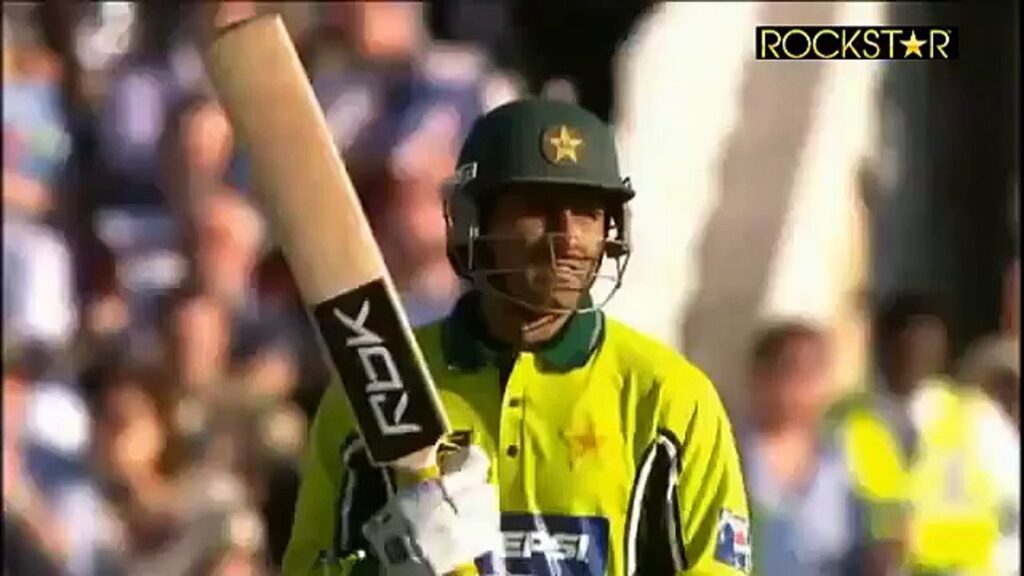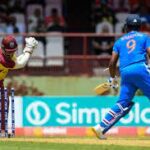
Abdul Razzaq, the Pakistan allrounder had been very impressive for his team, having produced match-winning contributions with his batting and bowling on numerous occasions. He along with Afridi gave Pakistan team the x-factor needed to change the course of the match in a few overs.
He was born on 2nd December 1979 in Lahore, Punjab. The player who has participated in every format for Pakistan was among those few who made an instant impact following the International debut. Though initially he was chosen in the team for his fast bowling, he transformed and developed himself as an allrounder.
Razzaq had a long-lasting International career which lasted for around 17 years. He made his debut in his home ground against Zimbabwe at the young age of 17 in 1996. Since his debut, in his initial years, he had hardly shown any inconsistency with the ball in hand. His role was to prevent the opposition from scoring runs at a rapid pace in the middle overs and in that department he had always been pretty perfect as he used to be very economical. He had an economy rate of 4.69 in 264 ODIs with more than 250 wickets and the impressive economy rate is what sets him apart from other allrounders. In his batting also he is close to 30 and played blinders in some matches.
Though in bouncy continental his batting seemed toothless, as a whole his bowling stature continued to improve along with the improvement in his batting or his pinch-hitting ability to precise.
From starting as a fast bowler and partly a pinch hitter he started uplifting his batting stature as a whole. Within a couple of years, he became an integral part of the batting department along with his bowling. Though his batting technique was always under the scanner, and most of the experts considered his batting technique as unsuitable for test cricket. But his exceptional and consistent performances in ODI cricket meant it was only a matter of time before he makes his way into test cricket and finally the moment arrived in 1999.
In 1999 World Cup he got selected in the squad as an integral member of the squad of the Pakistan team and he was used either at 1 down if consolidation of innings were needed as by then he had improved his running between the wickets a lot, or he used to come down lower down the order when rapid scoring was required.
Though in tests he wasn’t even close to replicate his white-ball performances, he usually used to have useful contributions. In 2000, he became the youngest cricketer to claim a hat-trick in test cricket. In the Carlton and United series, which included India, Australia, and Pakistan, Razzaq got the chance to flourish.
In the match against India, he scored 70* and took 5 wickets. In the third match of the series, the world witnessed Razzaq’s prominence as he struck McGrath for 5 boundaries in an over. Though Pakistan lost in the final Razzaq’s performances earned him a well-deserving Match of the series. His place in ODIs was not questionable, but his inconsistency in test cricket added up with a slump of form resulted in his place in the test team to be in stake.
His unquestionable form continued in ODIs as he picked up 6 wickets for 35 runs against Bangladesh in 2001. In 2002 against South Africa he scored his highest International score in an ODI against South Africa as he hammered 112 runs and did a record partnership of 257 runs with Saleem Elahi. He unsurprisingly got selected for the 2003 World Cup as an integral part of the squad.
In the world Cup, against India Abdul Razzaq dropped Sachin Tendulkar off Wasim Akram and Akram shouted: “Do you know whose catch you have dropped”. In that match, Sachin Tendulkar went onto score 98 off just 75 balls which is one of the best innings ever played at world Cup.
In the very same year against New Zealand, he struck a fierce 89 runs off just 40 balls which made the then New Zealand captain Stephen Fleming hail Razzaq as the best hitter. After that, though he only got matured over time with the bat in hand his pace seemed to fall, and that had a massive impact on his bowling performances.
His deteriorating performances with ball lasted for a couple of years as again from 2005 he started regaining his form and in the next couple of years he played integral parts in many won matches for Pakistan with his bowling.
In 2005-06 against India in test series, he took 9 wickets, and also scored 205 runs in 2 matches. From 2000-2006 in the longer form of cricket, he generally remained very inconsistent, and his place was more or less questioned and it was summed up with injuries that kept him out for a long time. Even after coming back he performed poorly in white-ball cricket, as a result, he got dropped from the 2007 World cup.
In 2007 T20 world cup also got overlooked by selectors and Razzaq in the hit of the moment decided to quit, as a protest against it. He later accepted the fact that it was only a momentarily emotional decision. In 2009 he returned to International cricket and helped Pakistan clinch the T20 World Cup title as he performed well with the ball.
But his career wasn’t going too smooth as he again faced injury which forced him to miss a couple of series. In February 2010 he returned for T20Is against England, and in the very second innings, he hit a blistering 46 off just 18 balls. After that, his career had faced ups and downs and luck also went against him as he faced injuries. On 31st October 2010, he notched up his 3rd ODI ton as he went berserk against SA bowling and scored a blistering 109 off just 72 balls. Though he got selected for the 2011 World Cup he failed to do anything substantial for the team and expectedly got dropped from the team for the next series.
Although he continued playing in T20is and was a part of the 2012 T20 world cup squad, he found it difficult to be in a perfect rhythm that modern cricket expects. As a result, things got tougher for him and over that injuries rubbed salt in his career wounds. Since then, he failed to make his career take off again and with age going against him meant he never was on the radar of selectors after 2013.
Abdul Razak had very good action, left-handers, in particular, used to find very difficult against him with his out-swinging deliveries. Yuvraj Singh had a very tough time against him.
His batting stance and the way he played is not something you will find in the coaching manuals but he was effective. We have now seen Steven Smith how he raise to number one test batsman playing with an unorthodox batting technique.
The technique in cricket is overrated and as long as the player smashing the boundaries on the field, nobody gives a weightage to it. Abdul Razak was always a good bowler for his team but how he went about his batting is what makes him one of the great allrounders ever played.




